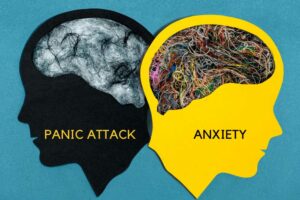Whether you’re recovering from addiction, trauma, or mental illness, healing can be a long and difficult process for anybody. It’s an unpredictable road to walk, full of twists and surprises. Many people experience setbacks, roadblocks, and obstacles that make the journey of overcoming addiction less straightforward. While this may feel like one of the hardest things you’ve ever done, there are ways you can try to make recovery easier on yourself, and allow yourself to embrace healing.
Have Realistic Expectations
It’s important to realize that your plan for recovery will almost certainly not go perfectly. There may be times that moving forward feels so impossible, or that your goals are too difficult to meet. You may not always have the answers to the questions that arise in your mind. Don’t look at these feelings as signs of failure; it’s just part of the process of recovery.
Even when things don’t go as you planned, keep going. In times of challenge, knowing that it’s possible to get through any problems you face can help you rise to the occasion and make it through whatever issues you’re facing.
Build Your Awareness
Increasing your knowledge of the problems that you may be facing can help to make your journey easier to navigate. Not only will you be better informed about what consequences can arise from issues like addiction, mental illness, or trauma, but you also learn how and why a particular problem affects you the way that it does. Knowing more can also help you to come up with a plan and make a more effective decision about what you to do next.
Be Patient with Yourself
Healing from trauma, mental illness, or addiction can take time. There is no exact amount of time in which anyone can expect to recover, and your experience of healing may be different from someone else’s. This can be a good thing, as the different healing and recovery time for different individuals just highlights the uniqueness of every journey. Even with a long road to recovery ahead of you, the journey to healing will be much easier if you embrace the positive changes as much as possible.
Visualize Yourself Being Healed
Seeing yourself as the person that you would like to be, living the life that you truly desire to live, can be a great way to stay on track in your recovery. Visualize yourself in better physical and mental health, feeling better day to day, being happy with your life, and being in a mental and emotional space that resonates with where you want to be long-term. You can use this vision of being healed as extra encouragement in times when you may really need it, and throughout your entire journey as a reminder of what your life could be – and will be.
Set Small Goals
Step-by-step goals are an essential part of a plan for recovery. They can allow you to better focus on what you have to do and how you will get there. Although you may have the ultimate goal of reaching complete recovery, having smaller goals can make a difference in how you work through your problems. Smaller goals can make progress easier day-to-day and can make the whole process seem more doable. Write down these goals, keep them visible, and use them as a way to help you stay on track while you are on your journey to healing.
Acknowledge the Positive
Grappling with addiction, trauma and mental illness can cause a wide variety of strong negative thoughts and feelings, such as sadness, anger, guilt, remorse, stress, and depression. Struggling with these emotions can make it harder to focus on life’s goodness and the worth of your mission to recover. Focusing on the positive side of things can really have a way of turning a bad situation around. When a situation gets difficult, try to think about the positive things about yourself on all fronts: remember the good things that you have done in the past, the good progress you’re seeing now, and the better life that you will have in the future.
Be Prepared for the Journey
Being prepared for the journey to recovery from addiction, trauma or mental illness can help make the process smoother. Preparation can help you to better anticipate potential problems, as well as know what to do in the event that one appears. You can be better prepared by getting as much information about any issue that you are fighting, building a support system around you, and equipping yourself with the tools that you will need to be successful to reach recovery. It’s also always helpful to talk to and seek assistance from others who are knowledgeable or who provide services for addiction, mental illness, or trauma.
The path to recovery can evoke feelings of uncertainty or hesitancy, and that’s normal. Though recovery can be a trying experience for those wanting to overcome addiction, it has the potential to improve your situation in lasting, life-changing ways. Embracing the ups and downs of your path to recovery can make it easier to move forward towards healing, and having professional guidance can make all the difference. Promising Outlook is a rehabilitation facility in Riverside, California. We offer a diverse array of effective services for treating addiction, relapse, detox, anger management, and stress reduction. Promising Outlook works to provide you with all the information you need to make progress towards healing and recovery. We believe in offering a safe and compassionate place for those in need of support. No matter how large or impossible the problems you’re facing may seem, you don’t have to go it alone. We are here to help. To learn more about the services that we offer, please call us at 866.980.2869.






